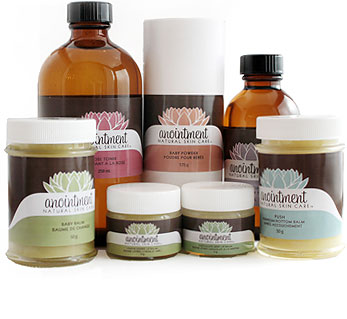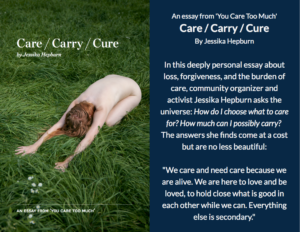April MacKinnon is a new contributor to OMHG, she is the owner of Nurtured, a natural parenting shop located in Halifax, Nova Scotia, Canada and Anointment Natural Skin Care. April juggles the demands of parenting two young children while operating two young businesses.
Many entrepreneurs, particularly women, begin their businesses as a result of the change in priorities that comes with having a baby. The goal is often to create a low-risk, low-investment venture that contributes to the family finances while allowing for more family time. Some of these women have an academic or job-oriented background in business, others do not. While having a background in business can be very beneficial when it comes to planning and prioritizing how your business will begin and grow, many successful entrepreneurs have learned by doing. Some, like myself, have learned the hard way.
Liability insurance is often a forgotten item on the budget planning list, particularly in the children’s industry. Given the recent chemical-burns-lead paint-BPA-crib recall-stroller malfunction-melamine-in-baby formula scandals, liability should be at the forefront of every single entrepreneur, particularly when babies and their parents are your consumer.
There are three overall categories of business: service, manufacturing, and retail. Service business can include being a yoga instructor, or operating a small catering company. In many jurisdictions, service industry providers will be required by law to hold liability insurance. Manufacturing and retail, often hand-in-hand, particularly for small businesses marketing themselves and their product are at most risk for liability and the least likely to purchase it.
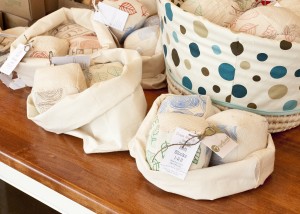 When I began the planning process of developing Nurtured, then an online retail business, I called a number of insurance brokers to acquire quotations on a liability policy. Red flags went up all over when I mentioned I wanted to sell baby carriers and slings. I couldn’t find an insurance company to take me seriously. One of the companies I called was Alfred J. Bell & Grant in Halifax, Nova Scotia. Ed Nix, Commercial Account Manager, knew insurance inside and out and was very helpful in finding a company to accept my situation. I recently spoke to Ed about the difficulties new businesses have in finding and maintaining liability insurance.
When I began the planning process of developing Nurtured, then an online retail business, I called a number of insurance brokers to acquire quotations on a liability policy. Red flags went up all over when I mentioned I wanted to sell baby carriers and slings. I couldn’t find an insurance company to take me seriously. One of the companies I called was Alfred J. Bell & Grant in Halifax, Nova Scotia. Ed Nix, Commercial Account Manager, knew insurance inside and out and was very helpful in finding a company to accept my situation. I recently spoke to Ed about the difficulties new businesses have in finding and maintaining liability insurance.
Ed explained to me that for the self-employed, there are often programs that fit your situation, for example, yoga instructors holding liability insurance have very low premiums because there are very high numbers across the country and they are all holding insurance. The difficulty lies in being a small manufacturer as most manufacturers are not purchasing liability insurance, so with fewer insured manufacturers, the premiums are higher because each manufacturer needs to have an insurance policy tailored to their needs as opposed to “fitting” a pre-existing insurance program.
As I mentioned, baby carriers and slings came up again and again as a red flag for insurance companies as a retailer, so I asked Ed, are there items that are blacklisted, that insurance companies just won’t touch?
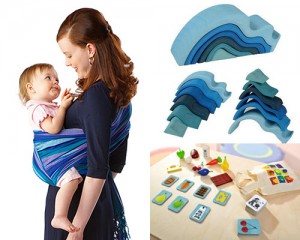 There are a number of factors an insurance company will look at when determining risk, and baby carriers, strollers and prams are among the highest risk products out there. The end consumer – infants and their parents – are generally favoured by the courts. In any product where there is risk of injury by falling or misuse, the liability will be very high.
There are a number of factors an insurance company will look at when determining risk, and baby carriers, strollers and prams are among the highest risk products out there. The end consumer – infants and their parents – are generally favoured by the courts. In any product where there is risk of injury by falling or misuse, the liability will be very high.
Gillian Mathias, owner of Etsy’s Pip Robins also went searching for a liability policy for her former company, g slings, a small-scale baby carrier manufactuer. Her quote was in excess of $10,000 a year. The insurance company will also want to know where you are planning to sell your product. If you have a high sales volume to the US, your premiums will increase again because of the litigious nature of the market place compared to Canada. Also, if applicable, insurance companies will also want to see that your product is ASTM certified, CPSIA compliant or that the applicable standards of your country for the age group for which your product is intended is adhered to. This testing is often tens of thousands of dollars to complete, making it out of reach for many small manufacturers.
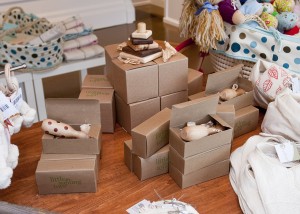 What about someone who wants to make a small wooden toy and finish it with beeswax, for example? Insurance companies will look to see that you have done your due diligence – are you using organic or soy-based paint? Have you ensured that all parts are large enough to not pose a choking hazard? Where are you planning to sell your product – craft fairs? Retail stores? Online?
What about someone who wants to make a small wooden toy and finish it with beeswax, for example? Insurance companies will look to see that you have done your due diligence – are you using organic or soy-based paint? Have you ensured that all parts are large enough to not pose a choking hazard? Where are you planning to sell your product – craft fairs? Retail stores? Online?
If, after all of the planning, checking and quote soliciting, you decide to forge forward without insurance, the good news is that there is no requirement by law that you hold liability insurance. The bad news is, if there is a claim filed against you, and you are not covered under your residential insurance policy (provided you have one of those: you are not required to have a residential insurance policy unless there is a mortgage on your home), you will need to hire a lawyer. If you are found at fault, and you do not have enough assets to cover the settlement, the court can order you to hand over future earnings, garnish your wages, or seek money from your spousal partner. Declaring bankruptcy will not absolve you, either, the courts will still seek damages until the settlement is paid or your natural life has ended.
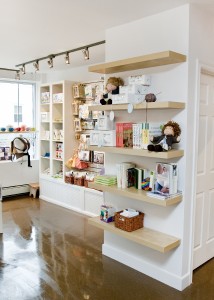 If you are planning to open a retail business, the above applies to you as well. If you are a retailer of a product that is subject to a claim, you will also be named in a lawsuit. If the manufacturer was not insured and you have some assets as a business owner, you will be subject to paying the settlement: the court searches for those with the deepest pockets. If you are a retailer of high risk products such as baby carriers and slings, it is advisable that you carry liability insurance and insist that your suppliers be insured as well: ask them. If they answer confidently, you know they have also done their due diligence and take their business seriously.
If you are planning to open a retail business, the above applies to you as well. If you are a retailer of a product that is subject to a claim, you will also be named in a lawsuit. If the manufacturer was not insured and you have some assets as a business owner, you will be subject to paying the settlement: the court searches for those with the deepest pockets. If you are a retailer of high risk products such as baby carriers and slings, it is advisable that you carry liability insurance and insist that your suppliers be insured as well: ask them. If they answer confidently, you know they have also done their due diligence and take their business seriously.
Manufacturing in China will also cause your insurance company to ask a lot of specific and detailed questions. They will want to know what is being made, who is making it, where are the raw materials coming from, and they will want to see independent third party testing for safety, quality control, and compliance to the governing standards of the market place for which the goods will be sold. Manufacturing in China may seem out of reach for small enterprises, but there are a lot of mom-run companies that investigate and choose to use this route.
At what point the customer takes responsibility for their purchases? Ed tells me that they don’t have to; the court will often side with the “victim”, the end consumer, because for the rest of us in business, ignorance of the law or of our product is not an excuse.
It can be scary, and even depressing to think about worst-case scenario and your risk, and for some, may turn them off business altogether. But for others, managing risk is just part of the process. Be sure to factor it in to your startup budget, ask around for recommendations from other small business owners, if you know them, and find out which underwriters will work with your industry.
As the owner of two companies, one being a small manufacturing business that produces skin care products and one that retails “high risk” items like baby carriers, I have learned the hard way that there are many governmental and bureaucratic regulations and hoops to jump through. The bottom line: don’t assume you know the rules. Check with expects, find other business owners that may be able to give you solid advice, access your local small business programs and do your research. Smart planning, forecasting and budgeting will help you on your path to being a successful business woman.


